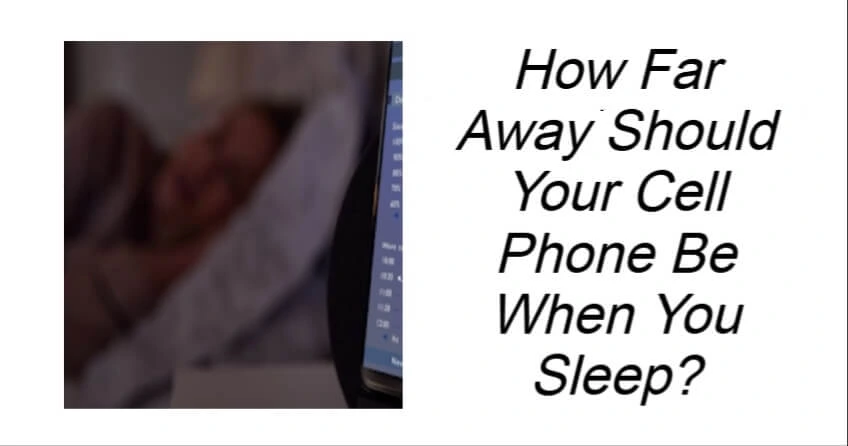How Far Away Should Your Cell Phone Be When You Sleep
In today’s digital age, our cell phones have become essential companions—we use them for communication, work, entertainment, and even relaxation before bed. However, growing concern among experts suggests that keeping your phone too close at night may pose risks to your health and sleep quality.
Why Does Cell Phone Distance Matter During Sleep?
Cell phones emit radiofrequency (RF) radiation, a form of non-ionizing electromagnetic radiation. While RF radiation is not as harmful as ionizing radiation (like X-rays), prolonged and close exposure, especially during rest, may influence biological processes.
During sleep, the body undergoes vital restorative processes, including cellular repair and hormone regulation. Exposure to electromagnetic fields (EMFs) at night can interfere with these processes—potentially disrupting sleep quality and circadian rhythms.
What Does Research Say About Cell Phone Radiation?
The health impact of cell phone radiation is still under study, and scientific findings remain inconclusive. However, several concerns have been raised:
- Disrupted Sleep: Exposure to RF radiation and blue light from screens may interfere with melatonin production, disturbing the sleep cycle and affecting sleep depth and quality.
- Nervous System Effects: Some studies have noted changes in brain activity during sleep when exposed to electromagnetic fields, including alterations in brain wave patterns.
- Long-Term Health Risks: Although no conclusive link to serious illnesses like cancer has been proven, the World Health Organization (WHO) classifies RF radiation as “possibly carcinogenic to humans” (Group 2B). This categorization encourages taking precautionary steps, particularly for children and adolescents.
Expert Tips to Protect Your Health While Sleeping
To reduce potential risks, here are some simple yet effective strategies:
- Keep Your Phone at Least One Meter Away
Placing your phone a safe distance from your body helps minimize direct exposure to radiation. - Use Airplane Mode or Turn It Off
Activating airplane mode disables all wireless communication, significantly reducing radiation emissions. - Avoid Charging in Bed
Charging your phone under your pillow or in bed not only exposes you to EMFs but also poses a fire hazard due to the risk of overheating or battery malfunction. - Use a Traditional Alarm Clock
If you rely on your phone as an alarm, consider switching to a classic alarm clock so you can keep your phone away while you sleep. - Limit Screen Use Before Bed
Avoid using your phone at least 30 minutes before sleep. Blue light disrupts melatonin production and can make falling asleep more difficult.
Risks of Keeping Your Phone Too Close at Night
Sleeping with your phone under your pillow, next to your head, or in direct contact with your body can lead to:
- Difficulty falling into deep, restorative sleep
- Morning fatigue or grogginess
- Heat or irritation in localized areas
- Risk of device overheating or malfunction during charging
While the immediate risks may be low, keeping your phone nearby throughout the night is an easily avoidable exposure.
Other Important Sleep Factors
Your phone isn’t the only thing that affects sleep. For better rest, also consider:
- Keeping your bedroom cool and dark
- Sticking to a consistent sleep schedule
- Avoiding caffeine and heavy meals in the evening
- Creating a relaxing bedtime routine without electronics
Conclusion
Though conclusive evidence is still developing, limiting cell phone exposure during sleep is a sensible and simple way to support your overall health and sleep quality. Placing your phone away from your bed, turning it off or switching to airplane mode, and avoiding bedtime screen use are small changes that can make a big difference in how well you sleep—and how you feel during the day.
You’ve just read, How Far Away Should Your Cell Phone Be When You Sleep. Why not read Manager Had To Hire A New Employee.

